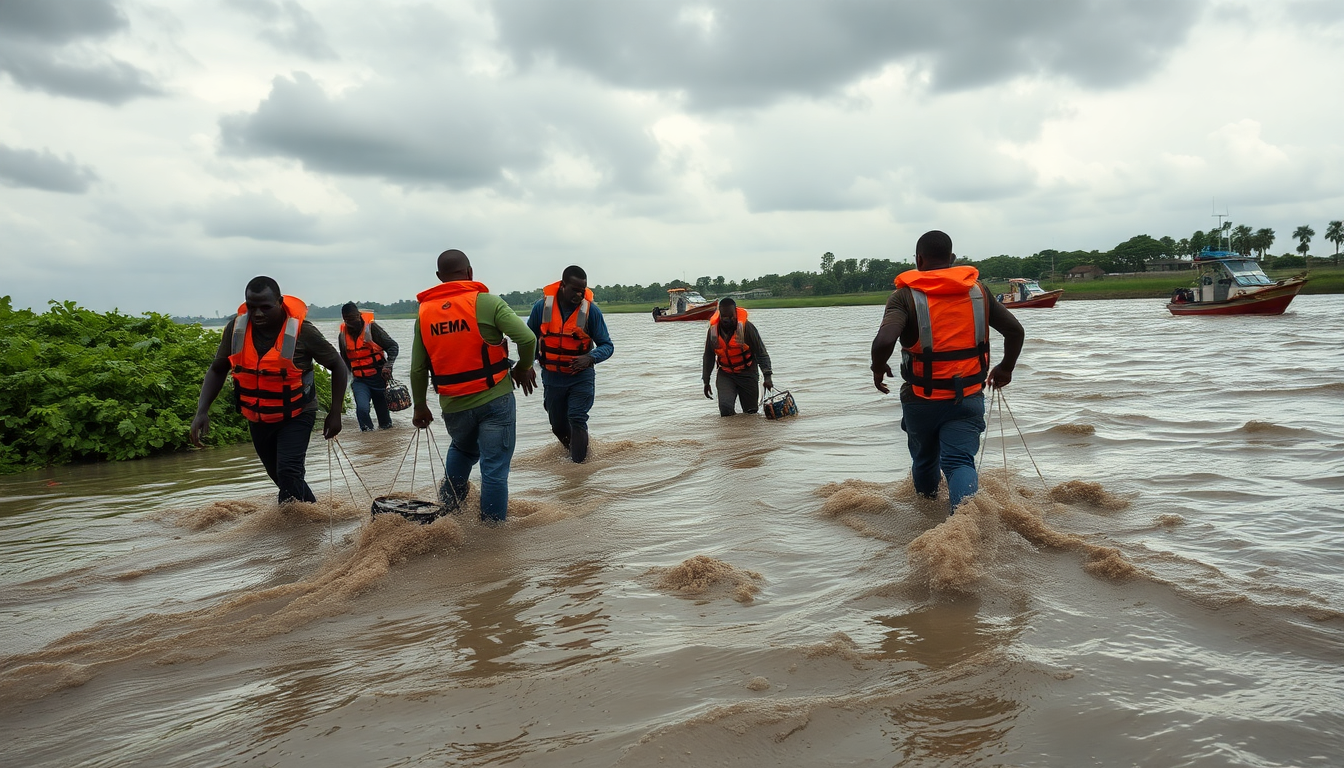Table of Contents
In a troubling incident that highlights the ongoing safety issues in maritime travel across Nigeria, a boat carrying over 50 passengers capsized in the northwestern state of Sokoto. As authorities scramble to respond, the National Emergency Management Agency (NEMA) has dispatched teams for search and rescue operations.
While reports suggest that around 10 individuals have been rescued, more than 40 are still unaccounted for, raising serious concerns about this tragic situation.
What Happened During the Capsizing Incident?
The heartbreaking event occurred while the boat was making its way to Goronyo Market, a vital trade hub in the region.
Zubaida Umar, the Director-General of NEMA, confirmed that the response team was quickly deployed after receiving alerts about the capsizing. The agency’s social media updates stressed the urgency of the situation and the ongoing efforts to find the missing passengers.
Local sources suggest that the accident may have been caused by overloading, a common problem faced by boats in Sokoto’s riverine communities. This issue reflects a wider trend of maritime accidents in Nigeria, particularly during the rainy season, which lasts from March to October.
During this period, river and lake water levels can rise sharply, creating perilous conditions for small boats. Have you ever wondered how something so simple as overloading can lead to such devastating outcomes?
The Bigger Picture: Historical Context of Boat Accidents in Nigeria
Boat accidents are sadly not rare in Nigeria. A similar tragedy occurred in August 2024, claiming the lives of at least 16 farmers when their wooden canoe capsized while attempting to cross a river. These recurring incidents underscore serious concerns regarding the safety protocols and regulations surrounding water transport in the region.
In another recent case, at least 13 individuals lost their lives in Niger State when a boat carrying around 100 passengers capsized. Just days later, six young girls drowned in Jigawa State after their boat capsized while returning home from agricultural work. These heartbreaking events highlight the urgent need for enhanced safety measures and regulations in Nigeria’s waterways. Doesn’t it make you think about the importance of safety when traveling, no matter the mode of transport?
What’s Next? Improving Maritime Safety
As rescue operations continue in Sokoto, officials and community leaders are advocating for a comprehensive review of maritime safety regulations to prevent future tragedies. Key areas requiring immediate attention include enhanced training for boat operators, stricter enforcement of passenger limits, and improved communication systems for distress signals. What steps can we take to ensure that those who rely on water transport can travel safely?
Moreover, public awareness campaigns that educate people about the dangers of overloading and the importance of adhering to safety protocols could significantly help in reducing the frequency of such accidents. The government must act decisively to protect the lives of those who depend on water transport for their daily activities, especially in rural and riverine areas. Isn’t it time we prioritize safety in every aspect of our lives?





